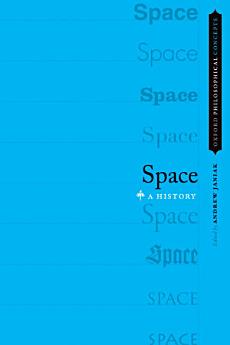Space: A History
Andrew Janiak
ene 2020 · Oxford University Press
Libro electrónico
288
Páginas
family_home
Apto
info
reportLas calificaciones y opiniones no están verificadas. Más información
Acerca de este libro electrónico
Recurrent questions about space have dogged philosophers since ancient times. Can an ordinary person draw from his or her perceptions to say what space is? Or is it rather a technical concept that is only within the grasp of experts? Can geometry characterize the world in which we live? What is God's relation to space? In Ancient Greece, Euclid set out to define space by devising a codified set of axioms and associated theorems that were then passed down for centuries, thought by many philosophers to be the only sensible way of trying to fathom space. Centuries later, when Newton transformed the 'natural philosophy' of the seventeenth century into the physics of the eighteenth century, he placed the mathematical analysis of space, time, and motion at the center of his work. When Kant began to explore modern notions of 'idealism' and 'realism,' space played a central role. But the study of space was transformed forever when, in 1915, Einstein published his general theory of relativity, explaining that the world is not Euclidean after all. This volume chronicles the development of philosophical conceptions of space from early antiquity through the medieval period to the early modern era. The chapters describe the interactions at different moments in history between philosophy and various other disciplines, especially geometry, optics, and natural science more generally. Fascinating central figures from the history of mathematics, science and philosophy are discussed, including Euclid, Plato, Aristotle, Proclus, Ibn al-Haytham, Nicole Oresme, Kepler, Descartes, Newton, Leibniz, Berkeley, and Kant. As with other books in the series, shorter essays, or Reflections, enrich the volume by characterizing perspectives on space found in various disciplines including ecology, mathematics, sculpture, neuroscience, cultural geography, art history, and the history of science.
Acerca del autor
Andrew Janiak is Professor and Chair of Philosophy at Duke University, where he also co-leads Project Vox, a web-based enterprise that seeks to recover the lost voices of women in the early modern period. He is the author or editor of four previous books on Isaac Newton and early modern philosophy, and is currently co-writing (with Karen Detlefsen) the first English-language monograph on the philosophy of Émilie du Châtelet.
Califica este libro electrónico
Cuéntanos lo que piensas.
Información de lectura
Smartphones y tablets
Instala la app de Google Play Libros para Android y iPad/iPhone. Como se sincroniza de manera automática con tu cuenta, te permite leer en línea o sin conexión en cualquier lugar.
Laptops y computadoras
Para escuchar audiolibros adquiridos en Google Play, usa el navegador web de tu computadora.
Lectores electrónicos y otros dispositivos
Para leer en dispositivos de tinta electrónica, como los lectores de libros electrónicos Kobo, deberás descargar un archivo y transferirlo a tu dispositivo. Sigue las instrucciones detalladas que aparecen en el Centro de ayuda para transferir los archivos a lectores de libros electrónicos compatibles.






